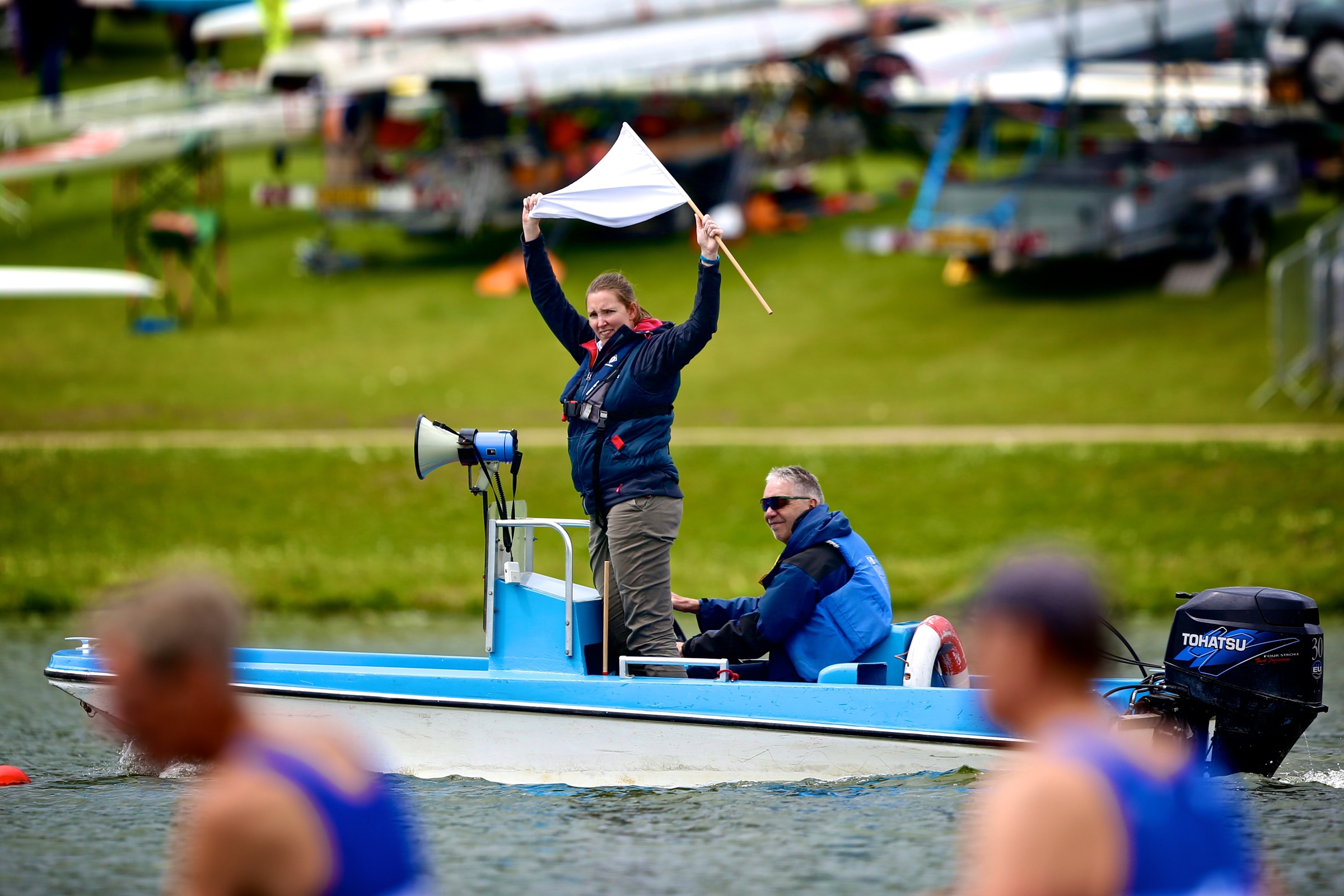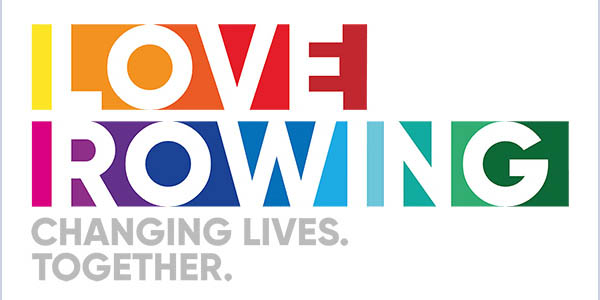Umpiring
Give back to the sport and have fun at competitions with the best seat in the house as a British Rowing umpire!

Umpiring at BRMC (c) Naomi Baker
Umpires help to ensure safe and fair racing for all competitors by applying the British Rowing Rules of Racing, allowing clubs andother competition organisers to run successful, enjoyable regattas and head races.
Key roles for umpires include:
- Aligner
- Starter
- Race umpire – in a launch or on the bank
- Finish judge
- Head of Control Commission
- Race Committee Chair.
Have a look through the Licence Administration section in the Umpires’ Handbook for further details about the number of times you need to officiate each year.
You can start training as an umpire at any age from 18 upwards, and you don’t need to be or have been a good rower or cox to be a great umpire.
Why become an umpire?
Great reasons to become an umpire include:
Does your club run a regatta or head?
Your local knowledge will be particularly valuable, so do consider supporting the event by training as umpire. Better still, train as a group with a few club mates!
- Your sport needs you! Umpires are essential for running affiliated regattas and head races.
- Umpiring is a great way of staying at the heart of competitions without competing (though it’s totally possible to be an umpire if you also race).
- You will learn new skills and meet new people.
- It’s a lot of FUN!
“Umpiring is the best excuse to be with my old friends, make new ones and enjoy rowing in lots of lovely places,” Andrew Blit, umpire
As an umpire you learn how to start races, manage crews (on and off the water), communicate effectively, and solve problems. Most importantly, umpires help people to do their best by allowing rowers to compete under safe and fair conditions.
How to become an umpire
It’s easy to get started as an umpire. Umpire training is organised regionally, and each one has a slightly different timetable but wherever you are based, qualifying as an umpire will involve:
- A written exam on the Rules of Racing
- At-competition training and mentoring by a licensed umpire
- A final ‘table-top’ practical exam where you will be taken through various scenarios.
You can start training to become an umpire at any time of the year – just fill in the form below and someone from your region will get in touch to talk about the next steps.
Progressing your umpiring career
After you’ve gained some experience as a National Umpire you might want to take the next step and get a Multi-Lane Endorsement.
“Talk to an umpire; we are friendly people and like to chat to potential new recruits,” Celia Hickson, umpire
The Multi-Lane Umpiring Panel also produces a Guide to Multi-Lane Umpiring, which provides an introduction to the wider aspects of umpiring at a multi-lane competitions.
After that, you could progress further to become a World Rowing umpire so that you could officiate at international regattas such as the World Championships and the Olympic or Paralympic Games! Find out about the British umpires who did just that in 2024.



